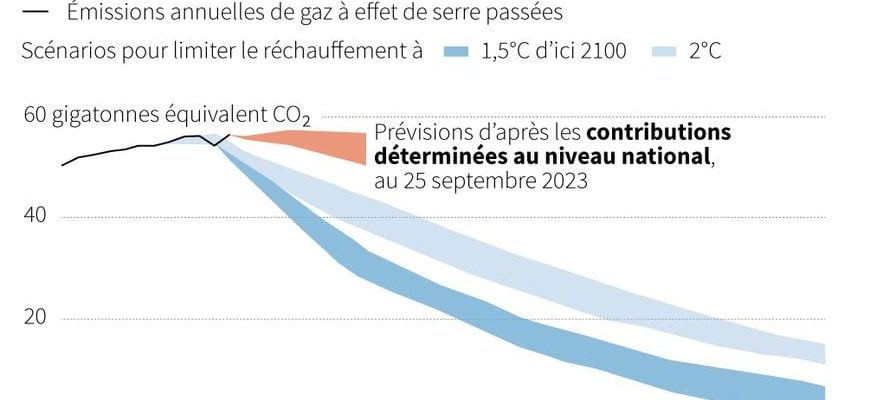There are sixty of them and their message is unequivocal: the energy transition must accelerate. From Patrick Pouyanné, director of TotalEnergies, to Jean-Dominique Sénart (Renault group), via Anne Rigali (AirFrance), these big French bosses call in a column published this November 26 by La Tribune Sunday to “reduce our emissions, change energy and invest quickly in a carbon-free production and consumption model, adapt, train the players”. A message carried by companies often at the heart of controversies for their contribution to climate change.
“Everyone must be part of the process, everyone must assume their responsibilities and be held accountable,” Sultan al-Jaber, the president of COP28 which will open Thursday, November 30 in Dubai, also declared this Sunday. “This includes all industries, including high-emitting industries such as aviation, transport, aluminum, cement, steel and the oil and gas industry,” he continued.
And for good reason: the current trajectory is not compatible with the neutrality objective set by the European Union for 2050, with a drop in France’s emissions of 9.6% since 2017. “Emissions of greenhouse gases greenhouse gases (GHGs) continued to increase sharply over the last decade, but half as fast as during the previous decade. notes, however, the Ministry of Ecology.
COP28: the climate emergency
© / The Express
At the World level, according to the IPCC, greenhouse gas emissions reached 59 gigatons of CO2 equivalent in 2019, i.e. 12% more than in 2010 and 54% more than in 1990. “Over the last ten years, 86% of this increase is due to fossil fuels,” according to the Climate Change Panel. An observation that jeopardizes keeping global warming below 1.5°C by 2100. According to the UN, it has already reached +1.15°C.
